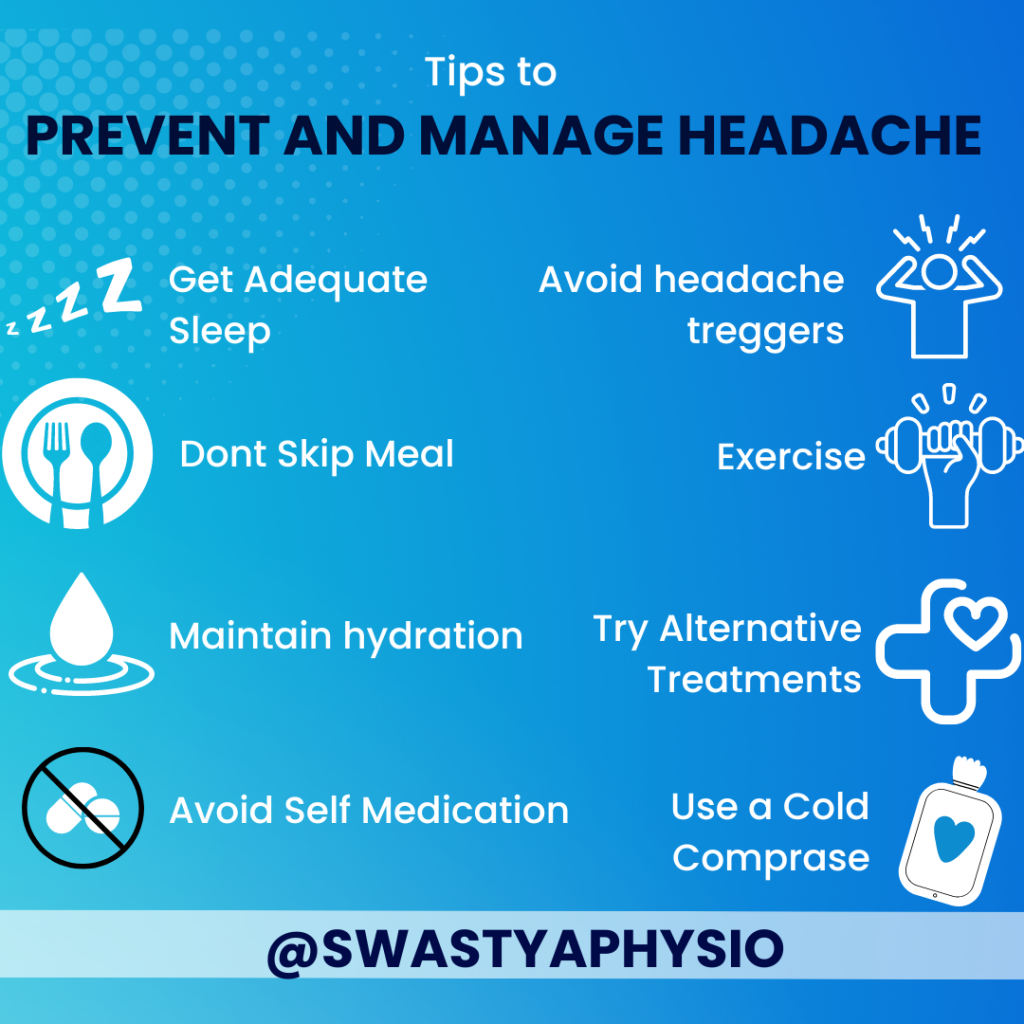Headaches are a common ailment that can significantly impact daily life. Understanding the various types of headaches and employing effective management and prevention strategies can help mitigate their impact. In this comprehensive guide, we will explore proven tips and methods to manage and prevent headaches, ensuring you lead a more comfortable and pain-free life.
Understanding Different Types of Headaches
To effectively manage and prevent headaches, it is crucial to understand the different types of headaches. Each type has distinct characteristics and requires specific approaches for treatment and prevention.
Tension Headaches
Tension headaches are the most common type of headache, often characterized by a dull, aching pain around the head. They are frequently caused by stress, muscle tension, and poor posture.
Migraine Headaches
Migraines are severe headaches that can last for hours or even days. They are often accompanied by symptoms such as nausea, vomiting, and sensitivity to light and sound. Triggers for migraine include hormonal changes, certain foods and beverages, stress, and sensory stimuli.
Cluster Headaches
Cluster headaches are intense headaches that occur in cyclical patterns or clusters. They are less common but extremely painful, often described as a burning or piercing pain around one eye or one side of the head.
Sinus Headaches
Sinus headaches occur when the sinuses become inflamed or congested, causing pain and pressure in the forehead, cheeks, and around the eyes. These headaches are often related to sinus infections or allergies.
Effective Management Techniques
Managing headaches involves both immediate relief methods and long-term strategies to reduce their frequency and severity.

Immediate Relief Strategies
- Over-the-Counter Medications: Non-prescription pain relievers such as ibuprofen, aspirin, or acetaminophen can provide quick relief for mild to moderate headaches.
- Hydration: Dehydration is a common cause of headaches. Drinking plenty of water can help alleviate headache symptoms quickly.
- Rest and Relaxation: Resting in a quiet, dark room can help reduce the severity of a headache, especially migraines.
- Cold or Warm Compresses: Applying a cold compress to the forehead or a warm compress to the neck and shoulders can help relax tense muscles and reduce pain.
Long-Term Management Strategies
- Regular Exercise: Engaging in regular physical activity can help reduce the frequency and intensity of headaches by improving overall health and reducing stress.
- Healthy Diet: Eating a balanced diet and avoiding known headache triggers such as caffeine, alcohol, and certain foods can help manage headaches.
- Stress Management: Techniques such as yoga, meditation, and deep breathing exercises can help reduce stress and prevent tension headaches.
- Sleep Hygiene: Ensuring you get adequate and consistent sleep can prevent headaches. Aim for 7-9 hours of quality sleep each night.
- Posture Improvement: Maintaining good posture, especially while sitting at a desk, can prevent tension headaches caused by muscle strain.
Preventative Measures
Preventing headaches involves identifying triggers and making lifestyle adjustments to avoid them.
Identify and Avoid Triggers
- Keep a Headache Diary: Tracking the occurrence of headaches along with potential triggers can help identify patterns and avoid future episodes.
- Monitor Food and Drink Intake: Certain foods and drinks, such as aged cheese, processed meats, and red wine, can trigger headaches. Identifying and avoiding these triggers is essential.
- Manage Screen Time: Prolonged exposure to screens can cause eye strain and headaches. Take regular breaks and use blue light filters to reduce the impact.
- Stay Hydrated: Drinking sufficient water throughout the day can prevent dehydration-related headaches.
- Limit Caffeine and Alcohol: Both caffeine and alcohol can trigger headaches in some individuals. Moderation is key to preventing these headaches.
Healthy Lifestyle Choices
- Regular Medical Checkups: Regular visits to a healthcare provider can help identify and manage underlying health issues that may contribute to headaches.
- Physical Activity: Incorporate moderate exercise, such as walking or swimming, into your daily routine to improve overall health and reduce stress.
- Balanced Diet: Eating regular, balanced meals and snacks can help maintain stable blood sugar levels, preventing headaches caused by fluctuations.
- Mind-Body Practices: Practices such as mindfulness, meditation, and progressive muscle relaxation can help reduce stress and prevent headaches.
When to Seek Professional Help
While most headaches can be managed with lifestyle changes and over-the-counter treatments, certain situations warrant professional medical attention.
Red Flags
- Severe and Sudden Onset: A headache that comes on suddenly and severely may indicate a more serious condition and requires immediate medical attention.
- Frequent or Chronic Headaches: If headaches occur frequently or are chronic, it is important to consult a healthcare provider to rule out underlying conditions.
- Associated Neurological Symptoms: Symptoms such as vision changes, difficulty speaking, or weakness in limbs accompanying a headache require prompt medical evaluation.
- Headaches After Injury: Headaches following a head injury or trauma should be assessed by a healthcare professional to rule out serious complications.
Professional Treatments
- Prescription Medications: In cases of chronic or severe headaches, prescription medications such as triptans for migraines or preventative medications may be necessary.
- Therapies and Counseling: Cognitive-behavioral therapy (CBT) and biofeedback can help manage stress and prevent headaches.
- Specialist Referrals: Referral to a neurologist or headache specialist may be necessary for complex cases requiring specialized care.
For more information read:
Headache Manamgement
B y understanding the different types of headaches and employing effective management and preventative strategies, individuals can significantly reduce the impact of headaches on their lives. Adopting healthy lifestyle habits, identifying and avoiding triggers, and seeking professional help when necessary are key components in managing and preventing headaches effectively.
Ready to explore your options for chiropractic and physiotherapy? Contact SwastyaPhysio today to schedule a consultation and discover the best path to your wellness journey. We’re here to support your health every step of the way.
Banaswadi | HBR layout | Kalyan Nagar | Kammanahalli | Horamavu | Hennur
